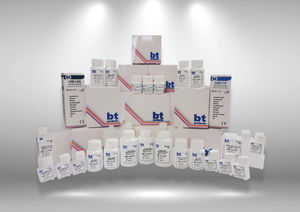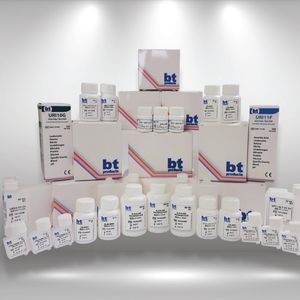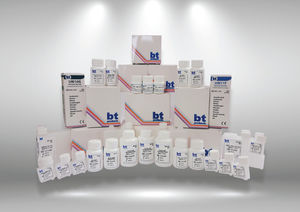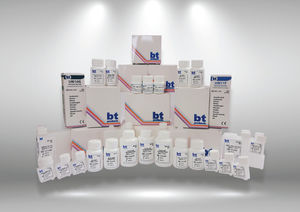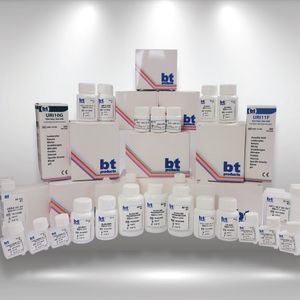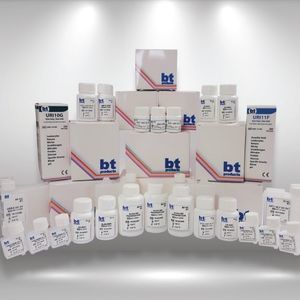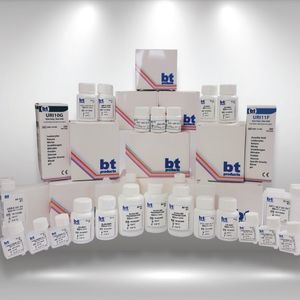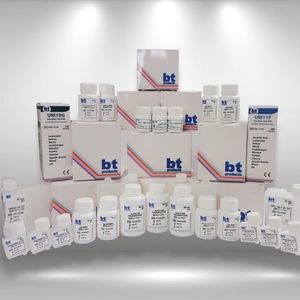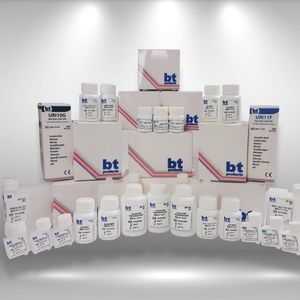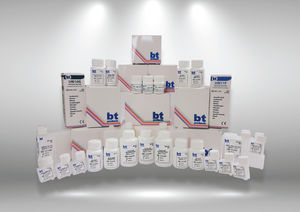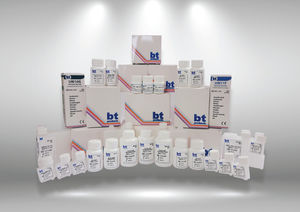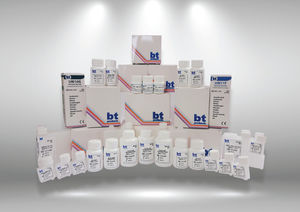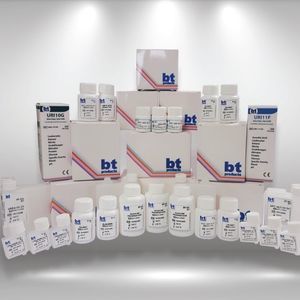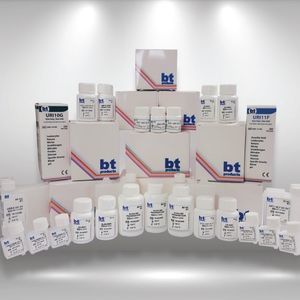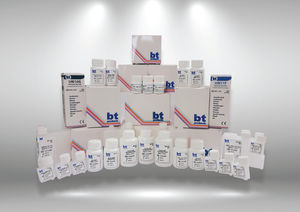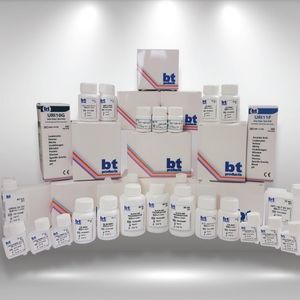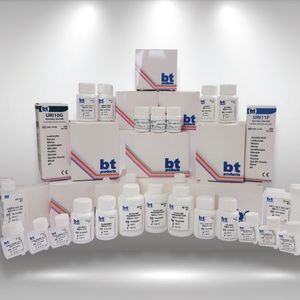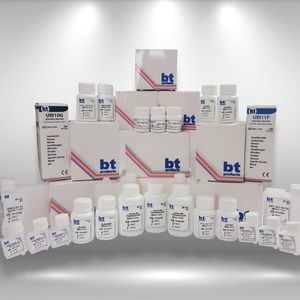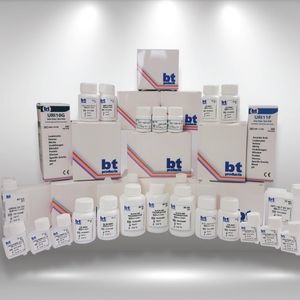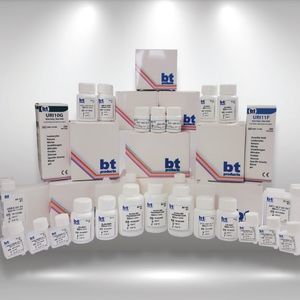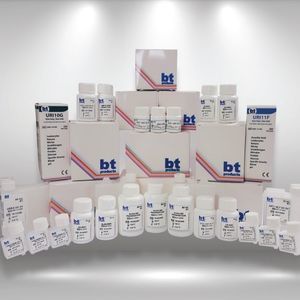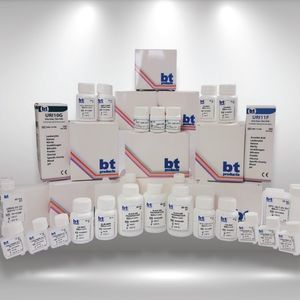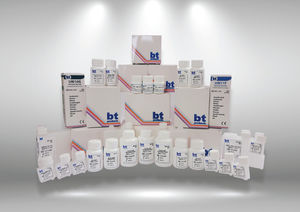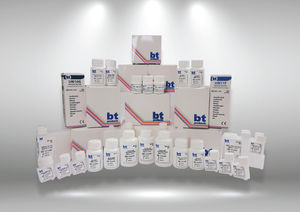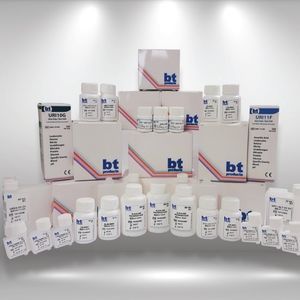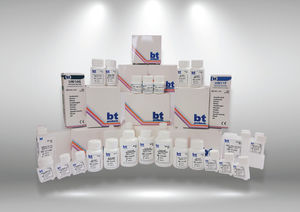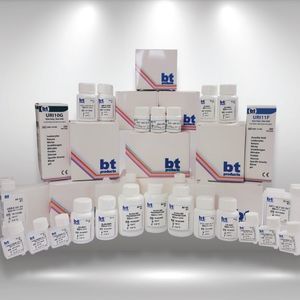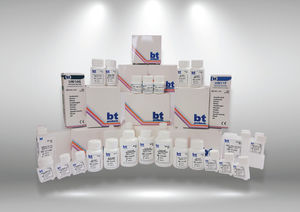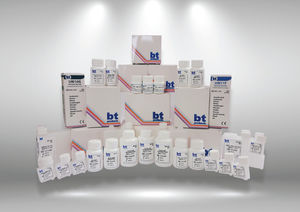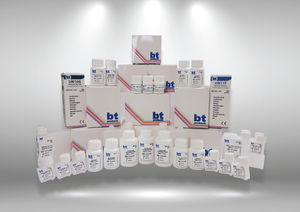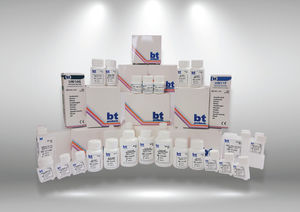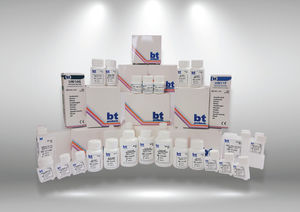
- Laboratory
- Laboratory medicine
- Solution reagent
- BILIMSEL TIBBI ÜRÜNLER
C-reactive protein reagent kit CRP-20 seriessolutionfor clinical chemistryHCV
Add to favorites
Compare this product
Characteristics
- Type
- solution
- Applications
- for clinical chemistry
- Tested parameter
- C-reactive protein
- Micro-organism
- HCV, HIV
- Storage temperature
Min.: 2 °C
(36 °F)Max.: 25 °C
(77 °F)
Description
Quantitative determination of C-Reactive Protein (CRP)
Principle:
C-reactive protein (CRP) is an acute-globulin synthesized by hepatocytes. The level of CRP can rise up to more than 20 times in association with acute inflammation. High CRP levels can be detected within 24 hours of the onset of the acute phase and the peak serum concentration is achieved within 48 hours. After an inflammatory stimulus, the release of cytokines induces a variety of genes to help control infection. One class of such genes is that of carbohydrate-binding proteins to which pertains CRP. In the present of calcium ions, the protein binds carbohydrates present on the membrane of many bacteria. The detection of CRP is useful in detecting inflammation and in monitoring its progress or response to treatment.
C-reactive protein (CRP) forms with the specific antibody an immunological complex. The increase of turbidity after the addition of antiserum measured at λ=340 nm is proportional to CRP concentration
REAGENTS
Buffered pH 7.8
Polyclonal goat anti-h CRP antibody variable
Sodium azide 0.095 %
PEG 3 %
PRECAUTIONS
Components from human origin have been tested and found to be negative for the presence of HBsAg, HCV, and antibody to HIV (1/2). However handle cautiously as potentially infectious.
CALIBRATION
bt products recommends using CRP calibrator . Recalibrate when control results are out of specified tolerances, when using different lot of reagent and when the instrument is adjusted.
REAGENT PREPARATION
Reagents are supplied in a two vial, ready to use,
Catalogs
No catalogs are available for this product.
See all of BILIMSEL TIBBI ÜRÜNLER‘s catalogsOther BILIMSEL TIBBI ÜRÜNLER products
Universal Bottled Clinical Chemistry Reagents
Related Searches
- Solution reagent kit
- Protein reagent kit
- Diagnostic reagent kit
- Laboratory reagent kit
- Enzyme reagent kit
- Histology reagent kit
- Dye reagent
- Antibody
- Buffer solution reagent kit
- Clinical chemistry reagent
- Quality control reagent kit
- Clinical chemistry analyzer
- Clinical reagent kit
- Virus reagent kit
- Automatic clinical chemistry analyzer
- Test strip
- Benchtop clinical chemistry analyzer
- Tissue reagent kit
- Electrolyte reagent kit
- Colorimetric reagent kit
*Prices are pre-tax. They exclude delivery charges and customs duties and do not include additional charges for installation or activation options. Prices are indicative only and may vary by country, with changes to the cost of raw materials and exchange rates.



